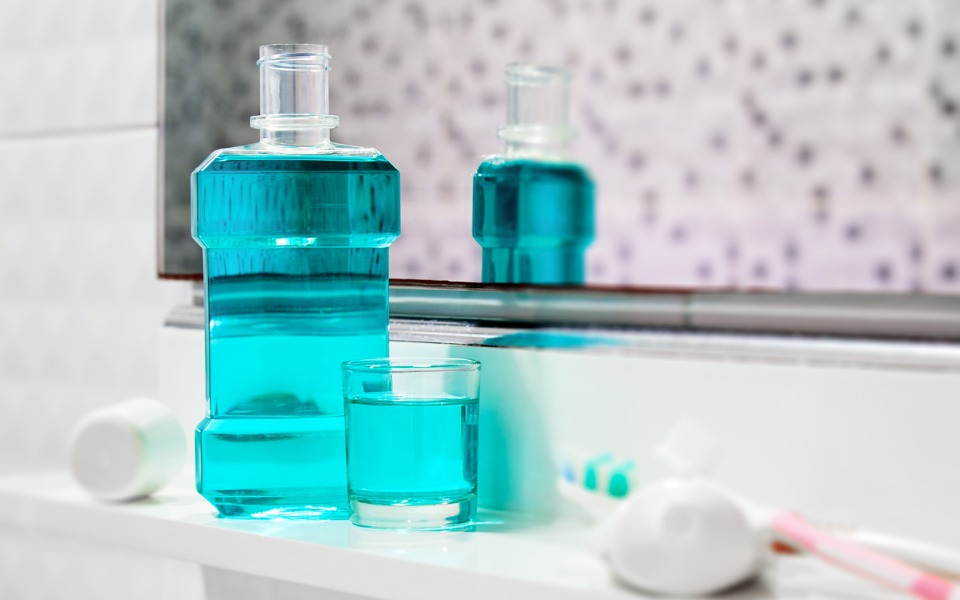
Mouthwashes can harm you, say doctors; here are natural alternatives

Did you know that the mouthwash you use regularly after brushing your teeth as part of your oral hygiene could also have several disadvantages? Dental physicians are increasingly telling patients to avoid mouthwashes.
Yet, rinsing the mouth with something besides water does give a good feel. Besides, it wards off bad breath. Thankfully, there are natural alternatives, and many of these are easily available, too.
Why mouthwashes could harm you
Oral rinsing with a mouthwash removes food particles and debris that remain in your mouth even after brushing and flossing. It generally reduces bad breath, and gives you a cool feeling.
However, it has its set of flaws. Here are some:
- Those containing alcohol could be risky if used frequently
- Our mouth contains both good and bad bacteria. Good bacteria help us in digesting our food. But the mouthwash does not discriminate, and kills both.
- Excessive use of mouthwash may lead to bleeding gums.
- Brushing your teeth after using a mouthwash could be painful due to sensitivity.
- You can experience a dry mouth problem if you use mouthwash too frequently.
- Children below 6 years of age are strictly told not to use mouthwash.
Also read: Usage of mouthwash could negate benefits of exercise: Study
What are the alternatives available?
There are several natural mouthwash solutions that can be used to avoid bad breath and gingivitis, to reduce plaque and tartar, and enhance your oral health. Let’s have a look at some of them.
Salt
The salt water rinse is one of the most common and effective remedies. It is a natural disinfectant, and gets rid of bacteria that cause bad breath and prevents gum inflammation.
Just add a half-a-teaspoon of salt to a glass of lukewarm water, mix it well. Gargle for about 30 seconds, and spit out the solution. You can do this three times a day.
However, do remember that long-term use of this remedy can alter the pH balance of your mouth and affect your tooth enamel.
Aloe vera
Studies have shown that aloe vera is as effective as the disinfectant commonly used in commercial mouthwashes.
Mix equal amounts of aloe vera juice and distilled water in a cup, rinse, and spit out.
Also read: UK varsity students to give dental health help to India’s poor
Lemon grass
Another natural solution is a lemon grass mouthwash. It has anti-bacterial, anti-inflammatory, and anti-oxidant properties that make it an effective mouthwash.
Add two or three drops of lemon grass essential oil to a glass of lukewarm water and gargle for 30 seconds before spitting it out.
Baking soda
Baking soda, also called sodium bicarbonate, has been known to kill the bad bacteria in the mouth, and can be used daily. It is supposed to be good for mouth sores, tooth sensitivity, and throat pain as well.
Add a teaspoon of baking soda to a cup of warm water, swirl it in your mouth for 30 seconds, and expel.
Guava leaf
Studies have shown that guava leaves have anti-microbial, anti-bacterial, and anti-inflammatory properties, and also act against plaque.
Mix half a dozen guava leaves in a cup of boiling water and gargle, then expel.
Sage
Sage oil mouthwash improves your breath by removing bacteria in the mouth. It also reduces inflammation of the gums and helps in healing wounds in the mouth.
You can use commercially-available sage-based mouthwashes, or you can also prepare it yourself.
Add 8 to 10 sage leaves to a cup of boiling water, and add one teaspoon of salt. Let it soak and cool, and then use it as a mouthwash.
Also read: WHO calls for sustained multisectoral action to prevent antimicrobial resistance
Coconut oil
There has been a lot of research on the various health benefits of coconut oil, and it can be used as a mouthwash also.
It reduces the formation of plaque and prevents gingivitis.
Just put a tablespoon of coconut oil into your mouth, allow it to melt, swirl it around for five minutes, and then spit it out.
Tea tree oil
Tea tree oil has traditionally been used to treat skin conditions, acne, athlete’s foot, and dandruff.
It also helps in treating gingivitis by decreasing the level of bacteria in the mouth.
Add 3 drops of tea tree oil to a cup of warm water, gargle, and spit out.
It is important to remember that you should not swallow tea tree oil, because it can be toxic.
At the end of the day, keep in mind that there is no replacement for regular brushing (especially at night) and flossing to maintain good oral hygiene.

